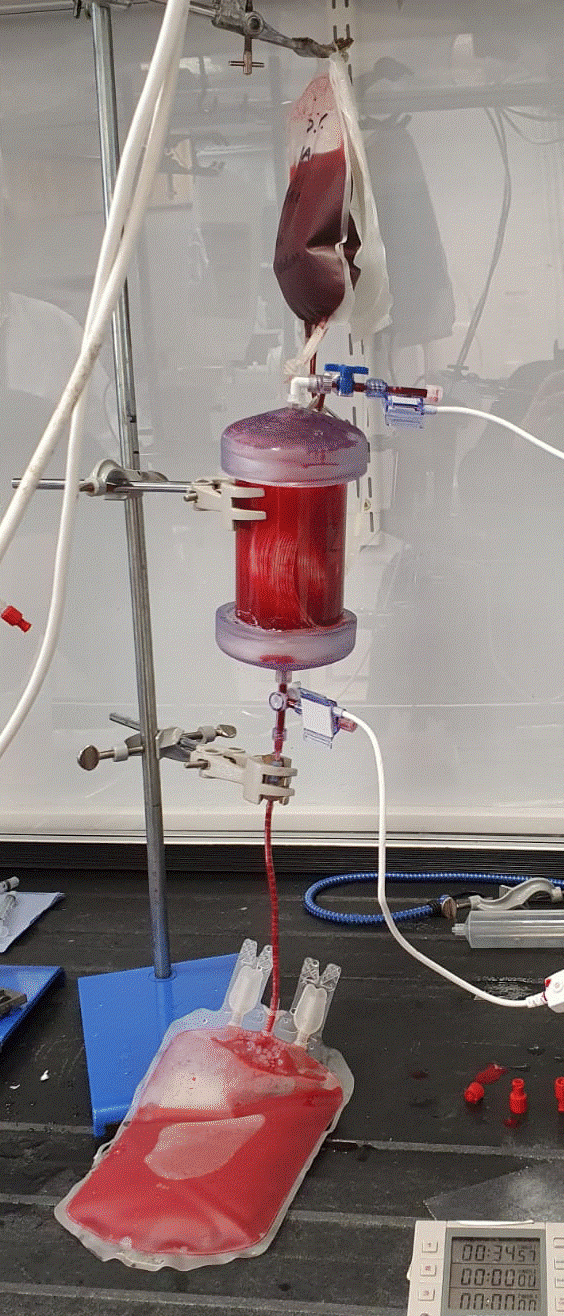Blood Transfusion
A device for reducing the toxic species that accumulate in stored blood and hence reduce the risk to patients and extend the storage life of transfusion blood
During storage, transfusion blood (packed cells) deteriorates and toxic species accumulate in the blood. Accumulation of these species limits the shelf-life of the blood. In the UK, the maximum time for which blood may be stored is limited to 35 days. In the USA, it is 42 days. The undesirable species that accumulate include potassium ions and free iron.
Potassium ions: Normal levels in blood are 3 to 5 mmol/litre. The toxic level (stimulating heart failure) is 7mmol/litre. Levels of potassium exceeding 20mmol/litre have been found in transfusion blood that is properly stored and used within the storage guidelines.
Free iron and free haem: Animal experiments and clinical studies have found that the more transfusion blood a critically ill patients receives and the older the blood, the more likely they are to suffer serious infections and die. Free iron can cause oxidative damage and nourish harmful bacteria. There is increasing evidence that high levels of free haem prevent macrophages from destroying bacteria.
The Haemair blood transfusion device is a simple mass exchanger with no moving parts that does not need to be connected to any services. It is placed in the drip line and greatly reduces the concentration of all the potentially toxic species that accumulate. These species include potassium ions, free iron and free haem.

The Haemair blood transfusion device




